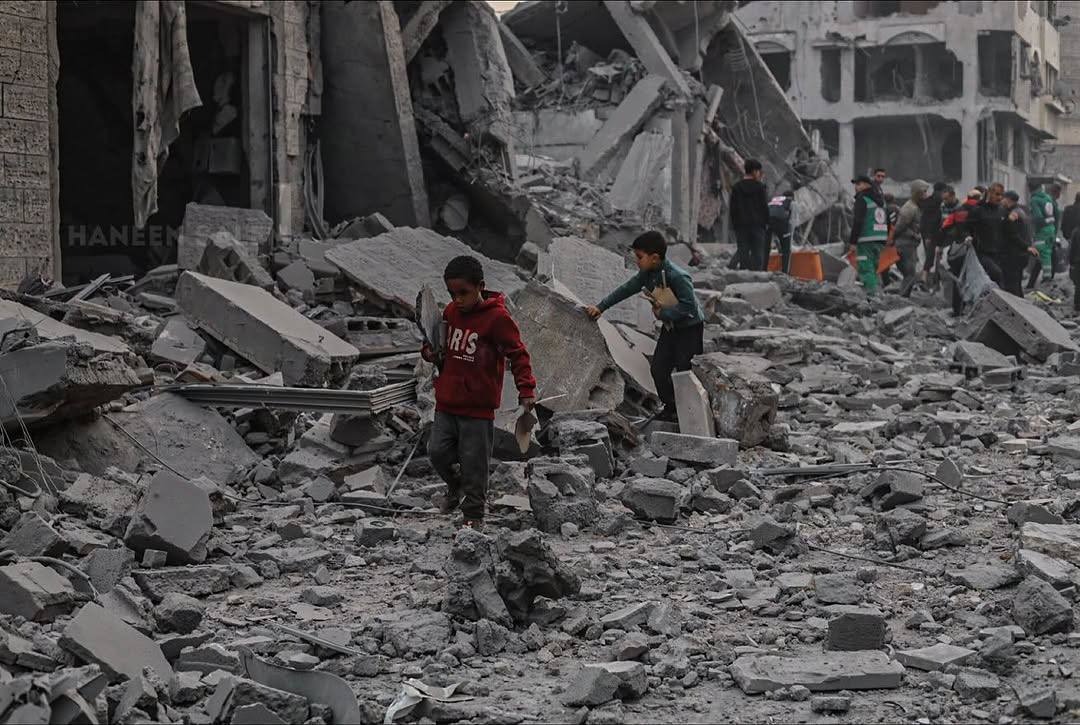In a significant diplomatic breakthrough, Hamas has agreed to a draft agreement for a ceasefire in Gaza, which also includes the release of hostages. This development follows weeks of intense conflict between Israel and Hamas, which has resulted in severe casualties and widespread destruction. The discussions, mediated by Qatar, are said to be at the “closest point” yet to sealing a final deal, according to sources familiar with the negotiations.
Ceasefire Agreement: A Glimmer of Hope
The ceasefire agreement marks a crucial step towards ending the ongoing hostilities that have devastated Gaza and surrounding areas. The violence, which erupted months ago, has claimed thousands of lives and led to a severe humanitarian crisis. The people of Gaza have suffered greatly, with essential infrastructure destroyed, medical facilities overwhelmed, and civilians caught in the crossfire.
The agreed-upon draft outlines a halt to the hostilities between Hamas and Israel, though the specifics of the terms remain confidential for now. Both sides have reportedly committed to cease military actions, giving space for humanitarian aid to flow into the region. This is expected to bring much-needed relief to the civilians trapped in the conflict zones.
In addition to the ceasefire, one of the most pressing aspects of the deal is the release of hostages. Many people, including foreign nationals, were taken captive by Hamas during the course of the conflict. Their release has been a central demand of the international community, with families and governments anxiously waiting for their safe return. While the precise details of the hostage release remain under wraps, it is believed that this will form a key part of the final agreement.
Qatar’s Role as a Mediator
Qatar h
The mediation process has been delicate and complicated, as both Hamas and Israel have their own strategic interests, and trust between the parties has been severely damaged over the years. However, Qatar’s diplomatic team, in close coordination with other international stakeholders, has succeeded in bringing both sides closer to an agreement.
An official from Qatar’s foreign ministry stated that the negotiations had reached a critical point, with both Hamas and Israel expressing a willingness to accept a final deal. “We are at the closest point yet to sealing an agreement. The framework for the ceasefire and hostage release is in place, and now it’s a matter of finalizing the details,” the official said.
International Support for the Deal
The proposed ceasefire and hostage release have garnered strong international support. Countries and organizations around the world have long called for an immediate halt to the violence and an end to the suffering in Gaza. The United Nations, the European Union, and the United States have all welcomed the progress in the negotiations, urging both sides to uphold their commitments and work towards a lasting peace.
“The international community has been united in calling for a ceasefire and the protection of civilians,” said a senior U.N. official. “This agreement, if finalized, could be a turning point in the conflict and a chance to save lives and prevent further destruction.”
The hostage situation has also drawn considerable attention, with many foreign nationals among those held by Hamas. The release of hostages, particularly those from Western countries, has been a priority for international governments, and securing their freedom is seen as a significant achievement in the peace process.
The Road Ahead: Challenges and Hopes
While the agreement is a promising development, challenges remain. Both Hamas and Israel have expressed reservations in the past about such agreements, and there are concerns about whether the ceasefire will hold. Some factions within Hamas may resist the deal, while Israel has emphasized that its security concerns must be fully addressed.
Moreover, there are questions about how the agreement will be enforced. International monitors may be needed to ensure that both sides adhere to the terms of the ceasefire, especially when it comes to the delivery of humanitarian aid and the protection of civilians.
Despite these uncertainties, the proposed deal represents a significant shift in the dynamics of the conflict. The release of hostages, in particular, offers hope for a broader resolution and the possibility of future peace talks. Experts believe that the international community’s growing pressure on both sides, along with Qatar’s mediation efforts, has brought the parties closer to a workable solution.
The people of Gaza, who have endured unimaginable hardships, are cautiously optimistic about the prospects of peace. The ceasefire, if it holds, will bring an immediate respite from the violence and open the door for aid and reconstruction efforts. However, many remain skeptical, knowing that previous ceasefires have often failed to hold, and the broader political issues remain unresolved.
The Broader Implications for the Middle East
The outcome of the Gaza ceasefire negotiations will have broader implications for the Middle East. The dynamics of the Israeli-Palestinian conflict are at the heart of the region’s geopolitical struggles, and any movement towards peace—no matter how small—could impact future efforts to resolve other conflicts in the region.
For Qatar, this success could further solidify its reputation as a diplomatic powerbroker in the Middle East. Having played a key role in various peace processes over the years, Qatar’s continued involvement in regional diplomacy reflects its commitment to fostering stability and reducing tensions in the region.
Conclusion: A Fragile Peace
The acceptance of the draft agreement by Hamas is a crucial step towards achieving peace in Gaza. While the final details of the deal are still being worked out, the prospect of a ceasefire and the release of hostages offers hope to the people of Gaza and to the broader international community. As the negotiations progress, there is cautious optimism that the deal will hold, and that this may be the first step towards a lasting peace in the region.
In the meantime, both sides, the international community, and humanitarian organizations will continue to monitor the situation closely, hoping that the ceasefire can be implemented swiftly and effectively, and that the relief efforts can reach the people who need them most.





